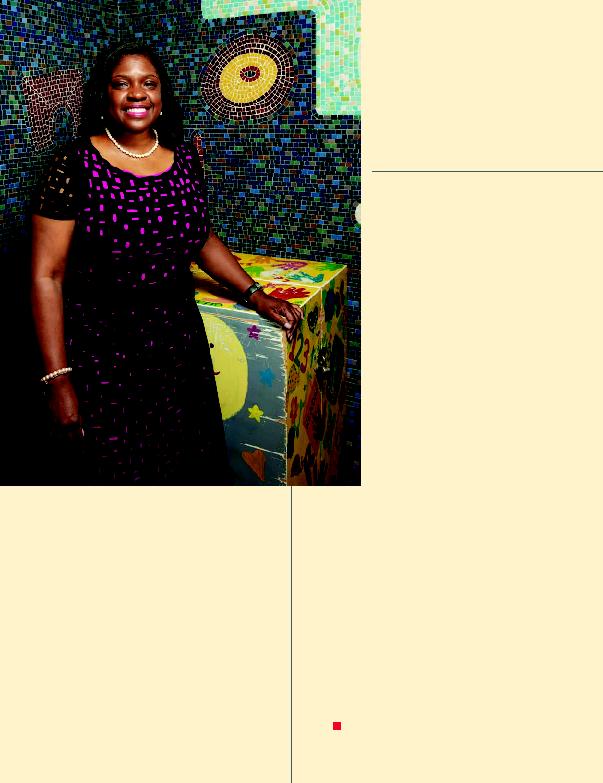
generation of mothers since they were children. O'Shea relates
to the patients on a deeply personal level.
is like to not speak the language."
health insurance for the family. Before that, they saw a doctor
only when they were sick. And to get the doctor to take care of
them, her mother bartered: she cleaned a doctor's office, and he
ministered to her sick children.
the numbers, from last year, are representative of poor neighbor-
hoods: 94% of patients were below 200% of the federally
the patient population was uninsured. Just
over half, 50.6%, had Medicaid, 6.7% had
Medicare, and only 2% had private insurance.
expect a certain standard from the clinic. Hill
pauses in front of a certificate honoring the
clinic for earning Level 3 patient-centered
medical home recognition, a federal designa-
tion. The framed commendation graces a wall
in the conference room, the same place where
the staff wrapped Christmas presents they
had collected for the community. Hill pulls up
photos on her iPhone of the gift-wrapping
frenzy. It's the one time she allows a measure
of pride--and that's for how the staff worked
together to ensure that patients had a good
Christmas.
she'd like a larger building and additional
community. "I want to increase patient access and to integrate
mental health into primary care."
mentions it too, saying perhaps that's true, but she adds that one
person "can make it that much better." And what Hill has done,
by leadership, is continue to champion those who have less and
ensure that they are as entitled to health care as anyone else.
a job, a house, and health benefits. This year, I have nothing."
"I am extremely worried that health care is uncertain," Hill
subject. "Health care should not be a privilege. It is a human
right."